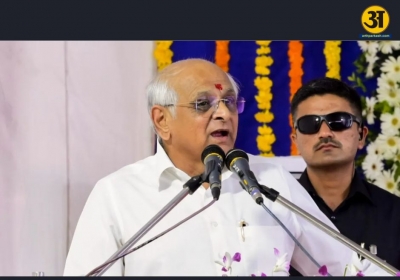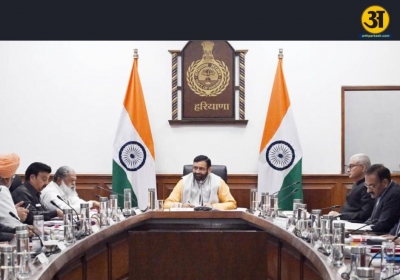
Trump backs Powell as fed chair
Donald Trump Confirms He Won't Replace Jerome Powell as Federal Reserve Chair
- By Gurmehar --
- Sunday, 08 Dec, 2024
Donald Trump, the President-elect of the United States, has stated that he does not plan to replace Jerome Powell as the Chair of the Federal Reserve (Fed) if he returns to the White House. Speaking on NBC’s Meet the Press, Trump explained that he does not foresee any changes in Powell’s position. He noted that although he has previously spoken about his right to influence monetary policy, including interest rate decisions, he does not think Powell would step down voluntarily, even if asked to.
Trump’s comments come after a tense period in which he had previously expressed frustration with Powell’s handling of interest rates. During his first term as President, Trump appointed Powell to the role, but later attempted to remove him due to disagreements over the Fed’s decision to raise interest rates several times. Despite his past disagreements with Powell, Trump’s recent statement shows a more restrained approach to the issue.
Powell’s defiance against political pressure
Jerome Powell, who has been serving as Fed Chair since 2018, has repeatedly asserted the independence of the Federal Reserve. Shortly after the November election, Powell made it clear that he would not step down if asked by Trump or anyone else in the administration. He emphasized that the President does not have the authority to fire him or other senior members of the Fed leadership, reinforcing the tradition of the Federal Reserve’s autonomy from political influence.
In response to Trump’s past comments about wanting to influence monetary policy, Powell stated that he was prepared to defend the independence of the central bank. He believes that the Fed should operate without political interference to maintain the credibility of its decisions, especially regarding interest rates and economic policy.
While Trump’s relationship with Powell has been rocky, he still maintains that he has the right to voice his opinions on monetary policy. In a Bloomberg News interview earlier in October, Trump explained that while he does not believe he should be able to directly order changes to interest rates, he feels entitled to provide input on whether they should go up or down. This sentiment reflects Trump’s longstanding belief that the President should have some degree of influence over the Fed’s decisions, especially when it comes to economic matters that affect the country.
ALSO READ: Asteroid lights up night sky before striking Russia’s Yakutia
ALSO READ: Israeli airstrike on Gaza Tent Camp leaves 21 dead, Hospital reports
Despite these comments, Trump clarified that he would not try to make direct orders to the Fed. Instead, he suggested that he should be able to provide recommendations or opinions on economic matters like interest rates. His criticism of the Fed’s handling of interest rates has been a consistent theme throughout his presidency, particularly in relation to the hikes that Powell and other Fed officials implemented in previous years.
The role of the Fed Chair and Trump’s criticism
In the NBC interview, Trump also mocked the position of Fed Chair, calling it “the greatest job in government.” He criticized the role by saying that Powell’s job seemed to involve little more than showing up once a month and making decisions on interest rates with a lack of accountability. Trump’s comments reflected his frustration with the Fed’s policies, which he often viewed as overly restrictive during his time in office.
Trump’s remarks about Powell, however, are not entirely new. During his first term, he made several attempts to pressure the Fed to lower interest rates and even publicly criticized Powell when the central bank did not take his preferred approach. Despite these tensions, Powell has continued to serve as the head of the Federal Reserve, navigating his relationship with Trump while ensuring the independence of the central bank.
Despite Trump’s outspoken criticism, Powell has expressed confidence that there will be no significant tensions between the Federal Reserve and the incoming administration. Powell has maintained that the Fed’s primary goal is to focus on the U.S. economy, and the central bank’s decisions will continue to be made based on economic data and not influenced by political pressure. This commitment to economic stability is a core principle of the Federal Reserve and one that Powell has reinforced throughout his tenure.
In the end, while Trump may have his opinions about how the Fed should operate, it appears that Powell will remain in his position as Chair unless there are major shifts in the political landscape. Powell’s resolve to defend the Fed’s independence, combined with Trump’s lack of desire to replace him, suggests that the relationship between the two may be less contentious moving forward. However, as history has shown, the dynamic between a sitting president and the Fed Chair can be unpredictable, and it remains to be seen how future policy decisions will unfold.





